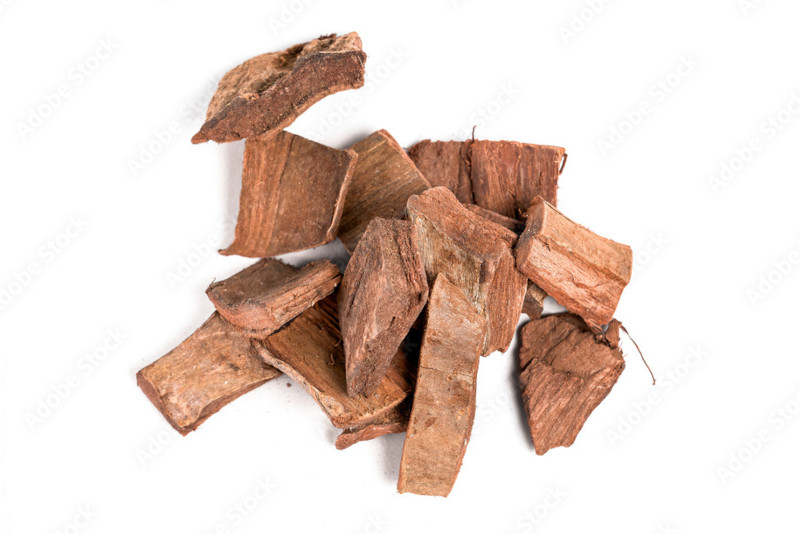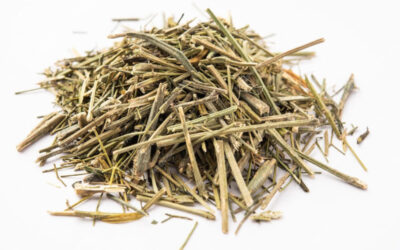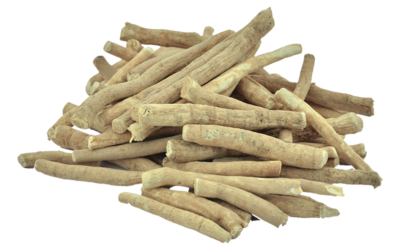
Helps support cardiovascular health, regulate blood pressure and cholesterol, offers anti-inflammatory and antioxidant benefits, aids liver health, and promotes wound healing.
Available in 5 and 25 Kg packs
Product Details
Origin: Arjuna, scientifically known as Terminalia arjuna, is a tree native to the Indian subcontinent.
Production: The Arjuna tree is native to the Indian subcontinent, and it is primarily cultivated and harvested in various regions of India and is the largest producer of Terminalia arjuna.
Name: Terminalia arjuna is commonly known by various names in different languages and regions. Arjun Tree: This is a common English name for Terminalia arjuna. Arjuna Herb the term “Arjuna” is sometimes used to refer to the herb in English. Sanskrit: Kakubham, Ayurveda: Arjun Sadada, Sinhala: Kumbuk, Telugu: Yerra Maddi, Kannada: Matti, Tamil: Marudha Maram, Malayalam: Neer Maruthu, White Marudah
Nomenclature: The term “Arjuna” is commonly associated with the herb derived from the bark of the Terminalia arjuna tree. Scientific Name: Terminalia arjuna, Family: Combretaceae. Botanical nomenclature: Genus: Terminalia, Species: arjuna.
Brief History:
The history of Terminalia arjuna, commonly known as Arjuna, is primarily rooted in the traditional medicine practices of the Indian subcontinent. Arjuna has been a significant component of Ayurveda, the traditional system of medicine in India, for centuries. The bark of the Terminalia arjuna tree has been utilized for its potential medicinal properties, particularly in the context of cardiovascular health. The bark of Arjuna is rich in bioactive compounds, including tannins, triterpenoid saponins, flavonoids, and minerals. These constituents are believed to contribute to its various health benefits. Arjuna has been traditionally used to support heart health, manage cardiovascular conditions, and promote overall well-being. Arjuna is often recommended in Ayurveda for conditions such as hypertension, angina, and other heart-related issues. It is believed to have cardio-protective and anti-atherogenic properties. In recent years, scientific studies have explored the potential pharmacological effects of Terminalia arjuna. Research has investigated its impact on heart health, antioxidant properties, and anti-inflammatory effects. Some studies suggest that Arjuna may have positive effects on lipid profiles and may support cardiovascular function. Arjuna has gained popularity not only in traditional medicine but also in the herbal supplement industry. It is available in various forms, such as powders, capsules, and extracts, for those seeking its potential health benefits.
Physical Properties:
The physical properties of Arjuna (Terminalia arjuna) refer to the characteristics of the plant and its parts, particularly those used in traditional medicine.
Tree Morphology
Height: Terminalia arjuna is a medium to large-sized tree that can reach heights of up to 25 meters.
Bark: The bark is smooth, grayish, and sheds in thin, papery layers. The bark is the part of the plant traditionally used in herbal medicine.
Leaves
Type: The leaves are simple, alternate, and oblong or elliptic in shape.
Color: The leaves are typically green, providing a contrast with the tree’s grayish bark.
Flowers
Color: The flowers of Terminalia arjuna are usually yellowish-white.
Arrangement: They are arranged in terminal or axillary spikes.
Fruits
Type: The fruit is a drupe, and it is ovoid or ellipsoid in shape.
Color: The fruit changes from green to brownish as it matures.
Chemical Composition
Active Compounds: The bark of Arjuna contains various bioactive compounds, including tannins, triterpenoid saponins, flavonoids, and minerals. These compounds are believed to contribute to its potential medicinal properties.
Medicinal Parts
Bark: In traditional Ayurvedic medicine, the bark of Arjuna is the primary part used for its medicinal properties. It is collected, processed, and often formulated into various herbal preparations such as powders or extracts.
Geographical Distribution
Native Range: Terminalia arjuna is native to the Indian subcontinent, including areas of Bangladesh, Sri Lanka, and India. It is commonly found in riparian habitats along rivers and streams.
Cultural Significance
Ayurvedic Importance: Arjuna holds cultural and medicinal significance in Ayurveda, where it is traditionally used to support cardiovascular health and manage various heart-related conditions.
Health benefits of Arjuna
Terminalia arjuna, commonly known as Arjuna, has been traditionally used in Ayurvedic medicine for various health purposes. While more research is needed to establish definitive scientific evidence for all claimed benefits, some potential health benefits of Arjuna include:
Cardiovascular Health:
• Arjuna is often used to support heart health and manage cardiovascular conditions.
• It may have cardio-protective effects, helping to strengthen the heart muscles.
Blood Pressure Management:
• Some studies suggest that Arjuna may have hypotensive (blood pressure-lowering) effects.
• It may contribute to the management of hypertension.
Cholesterol Regulation:
• Arjuna has been investigated for its potential to positively impact lipid profiles.
It may help in reducing cholesterol levels and managing lipid metabolism.
Anti-inflammatory Properties:
• Arjuna is believed to have anti-inflammatory effects, which may be beneficial for various inflammatory conditions.
• It may help reduce inflammation in the cardiovascular system.
Antioxidant Activity:
• The presence of flavonoids and other compounds in Arjuna suggests antioxidant properties.
• Antioxidants help neutralize free radicals, potentially reducing oxidative stress.
Liver Health:
• Arjuna may have hepatoprotective effects, supporting the health of the liver.
• It may contribute to liver detoxification processes.
Anti-Arthritic Potential:
• Some studies suggest that Arjuna may have anti-arthritic properties, potentially helping in managing arthritis-related symptoms.
Wound Healing:
• Arjuna has been traditionally used for its potential in promoting wound healing.
• It may have antibacterial properties beneficial for skin health.
Adaptogenic Properties:
• Arjuna is sometimes considered an adaptogen, helping the body adapt to stress.
• It may have a calming effect on the nervous system.
Diuretic Effects:
• Arjuna has been reported to have diuretic properties, promoting urine flow.
• This diuretic action may be helpful in conditions involving fluid retention.
Nutritional value of Arjuna
Terminalia arjuna, commonly known as Arjuna, is not typically consumed as a food item, and thus, its nutritional content is not commonly available. Arjuna is primarily used for its medicinal properties, particularly in traditional Ayurvedic medicine, where the bark is the part most commonly utilized.
However, it’s important to note that the bark of the Arjuna tree is not a typical source of nutrition in terms of macronutrients (such as proteins, carbohydrates, and fats) or micronutrients (vitamins and minerals). Instead, its value lies in the presence of bioactive compounds like tannins, triterpenoid saponins, flavonoids, and other phytochemicals that contribute to its potential medicinal benefits.
Uses:
Terminalia arjuna, commonly known as Arjuna, has various traditional and modern uses, particularly in the field of Ayurvedic medicine. Here are some of the primary uses of Arjuna:
1. Cardiovascular Health: Arjuna is well-known for its traditional use in supporting heart health. It is believed to strengthen the heart muscles and improve overall cardiovascular function. It may be used to manage various cardiovascular conditions, including hypertension and angina.
2. Hypertension Management: Arjuna has been traditionally used for its potential hypotensive (blood pressure-lowering) effects, making it beneficial for individuals with high blood pressure.
3. Cholesterol Regulation: Traditional uses of Arjuna also include its potential to regulate lipid profiles, aiding in the reduction of cholesterol levels.
4. Anti-inflammatory Effects: Arjuna is believed to have anti-inflammatory properties, making it valuable for managing inflammatory conditions, particularly those affecting the cardiovascular system.
5. Liver Support: Arjuna may have hepatoprotective effects, contributing to the health of the liver and its detoxification processes.
6. Anti-Arthritic Properties: Some studies suggest that Arjuna may have anti-arthritic effects, potentially aiding in the management of arthritis-related symptoms.
7. Adaptogenic Benefits: Arjuna is sometimes considered an adaptogen, helping the body adapt to stress and potentially having a calming effect on the nervous system.
8. Diuretic Properties: Arjuna has diuretic effects, promoting urine flow. This property may be useful in conditions involving fluid retention.
9. Wound Healing: Arjuna has been traditionally used for its potential in promoting wound healing. It may also have antibacterial properties beneficial for skin health.
10. Antioxidant Activity: Arjuna is believed to exhibit antioxidant activity due to the presence of flavonoids and other bioactive compounds. Antioxidants help neutralize free radicals and reduce oxidative stress.






